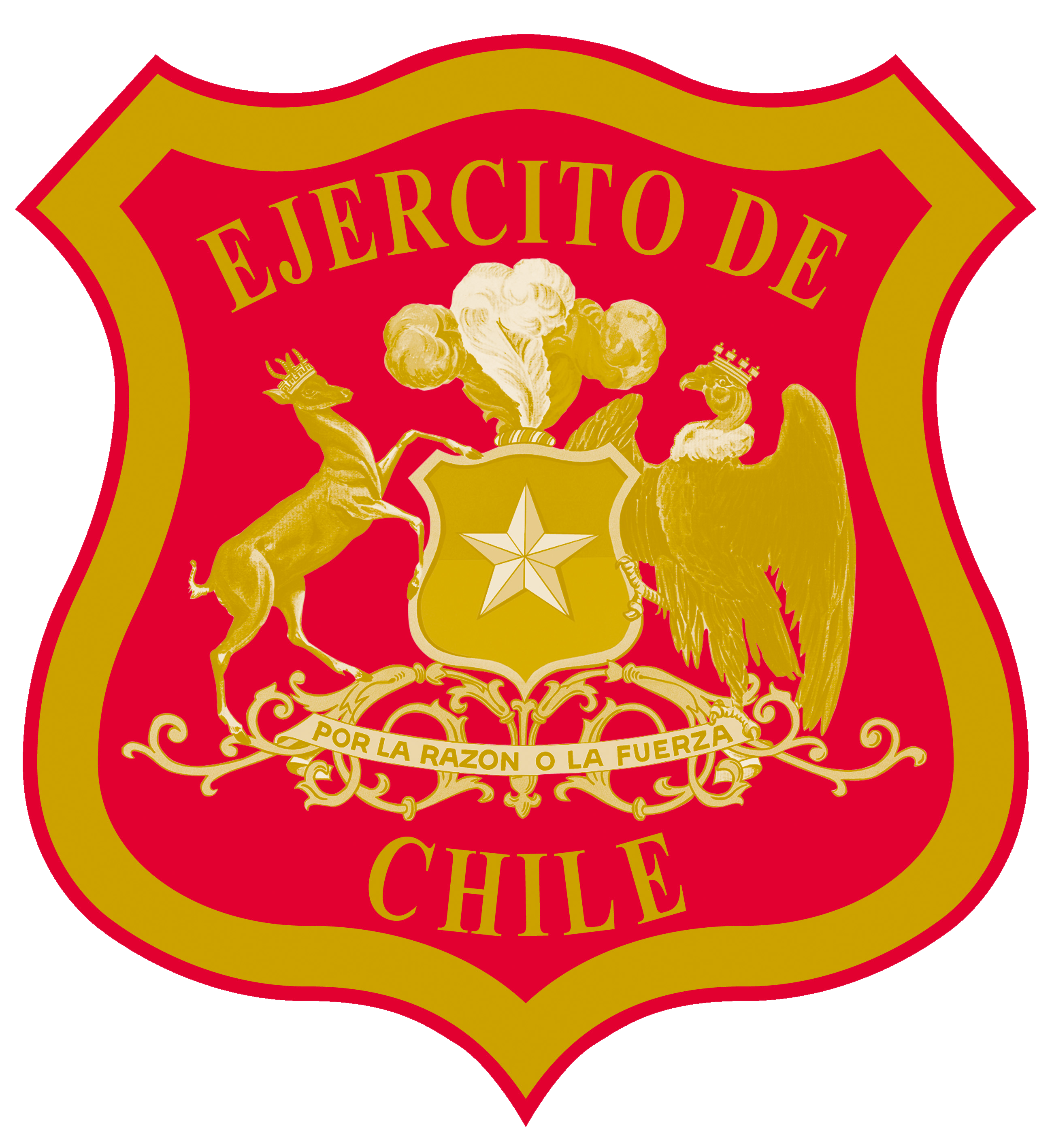Structure and Organization
Branches, Services y Specialties
They allow Land Force specialization and contingent training, providing the necessary tools, knowledge and development for the exercise of military duties. The Army is a complex organization and this structure coordinates efforts that optimize the operation of all the units that comprise it.
BRANCHES are specialized organizations made up of personnel and material that, when employed as units, carry out their work in combat in an integrated manner. They are repositories of traditions with their own spirit and identity.
Infantry
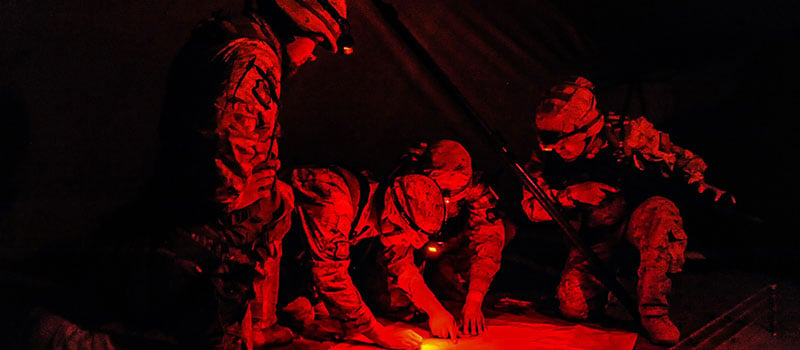
The infantry is the core of the force and it is capable of carrying out maneuvers in all types of terrains and circumstances. They are known for their ability to conquer, occupy, organize and hold the ground. If necessary, they may pursue the enemy in order to complete their task.
The diversity of their weaponry as well as their mobility and shock capacity provide them with a well-balanced set of powerful skills that allow them to participate in joint combat with other branches. When in contact with the enemy they are specifically qualified to engage in close-fire combat.
The infantry is composed of motorized, mechanized, armored, mountain and Andean units. Moreover, most infantry units have characteristics that make them suitable for air transportation.
Each of them has its own features regarding equipment, capabilities, employment, types of targets and tasks to accomplish.
Artillery 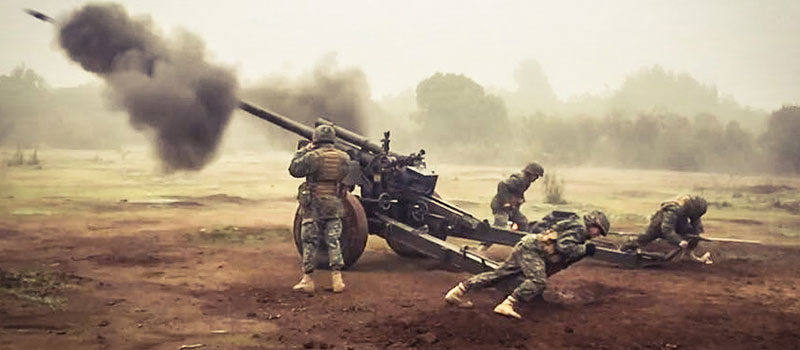
Artillery delivers direct or indirect fire against land targets. Indirect fire is the most common type of fire employed for disabling targets because of its longer range.
Field artillery is the most important component of the fire support system. It provides freedom of action enabling the maneuver, as required by the commander of the unit, which acts upon fire.
Gunners participate in combat from larger distances, thus contributing to breaking the enemy’s will to fight, gaining ground in the battlefield and restricting enemy troop movement as well as disrupting their logistical, command and control systems. This arm can carry out surprise fire attacks because of its ability to concentrate fire in specific areas in minimum time.
Among their various means there is towed and self-propelled artillery, rockets and anti-aircraft warfare, as well as target acquisition. Because of their combat power they can have a very decisive influence on the outcome of an operation.
Armored Cavalry
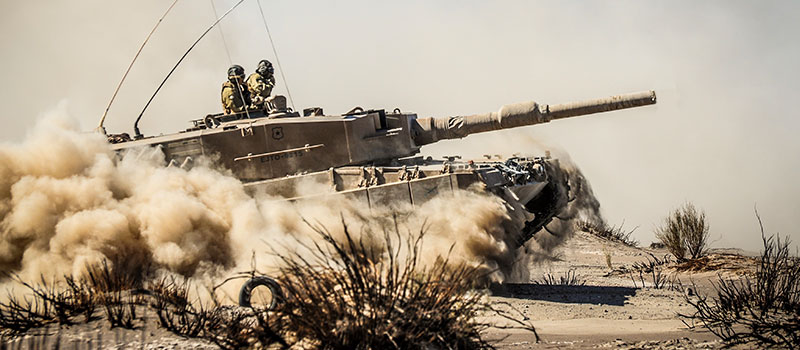
This branch is specially qualified for long-range direct fire combat, scouting and contact with the enemy, as well as encounter battles, tactical liaison and surprising the enemy. It is prominently employed in favor of achieving decisive outcomes.
It is known for its tactical mobility, fire power, flexibility, ability to protect means due to its armored features, clashing power and shock.
This branch is essentially quick and serves an offensive role. Generally, armored cavalry units integrate combat teams comprised of armored and mechanized infantry components, contributing in flexibility and providing complementary resources that are vital to the success of the maneuver.
Within this branch there are scouting units that vary in magnitude, features and composition according to the scenario where they are to be employed. These may be armored, mounted and mountain scouting units.
Engineers
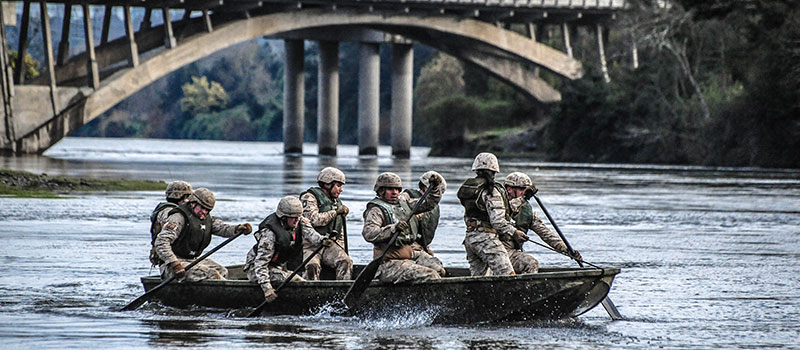
This is a technical branch with capabilities that provide continuity and smoothness to maneuver units helping them reach their objectives. It can be employed in all kinds of terrains in favor of the maneuver. They perform specialized work aimed at providing mobility, counter mobility and survivability to the ground force, which includes performing combat roles if necessary.
They contribute to own forces by increasing combat efficiency in any tactical action, while also hindering enemy capabilities and influencing their moves through destruction, construction and obstruction.
They are organized in motorized, mountain, mechanized and construction combat engineering units.
Signal
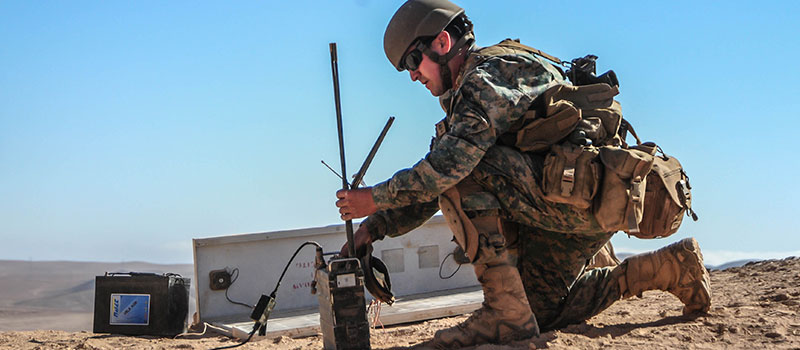
This branch runs communications in the different levels of military work, executing tasks that allow the military to exploit the electromagnetic and cyber-space spectrum in their benefit.
The platform of telecommunications, computer science and electronic warfare is composed of its technical means, which provide flow of information derived from processes that are inherent to the ground force management and action. To this regard, the Signal Branch is responsible for exploiting and maintaining command and control systems in order to contribute to the efficiency of the decision-making cycle.
SERVICES are made up of specialized personnel and resources aiming to meet material, combat, moral and spiritual needs of the Land Force, ensuring operations through administrative and logistical support that the Land Force requires fulfilling its missions.
Ordnance
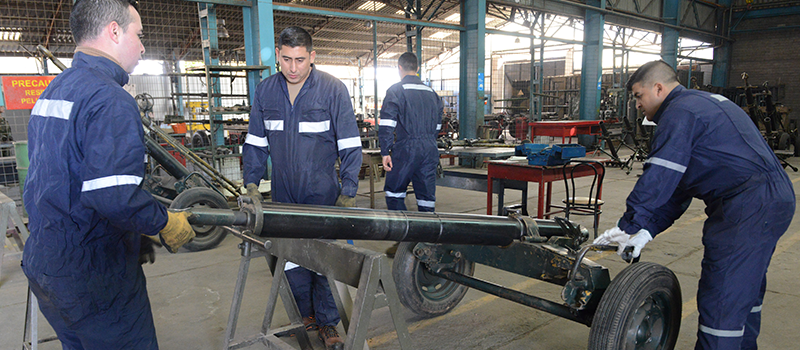
This service is integrated by Ordnance officers and non-commissioned officers, specialized personnel and bodies in charge of guaranteeing the operability, reliability and availability of materiel and weapon systems employed by the ground force and the Institution. This by applying concepts of prevention and recovery maintenance.
Quartermaster Service
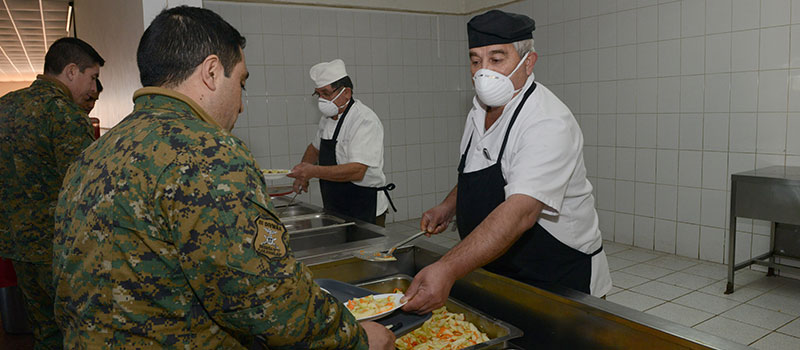
This service is integrated by Quartermaster officers and non-commissioned officers, specialized personnel and supply units. They are responsible for determining needs, receiving, stocking and distributing all logistic supplies. This service is also in charge of financial resource management and procurement, a logistical function exercised in the Institution.
Personnel
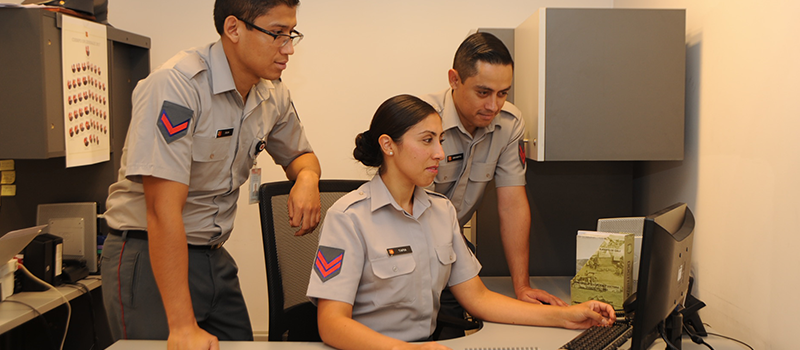
This service contributes in the administration of human resources and exploitation of documentary support systems. Its general mission is to realize and execute the administrative work related to personnel in the different units of the Institution, integrating general assistantships, messaging centers, historical records and general quarters of the Combined Arms Units.
Military Justice
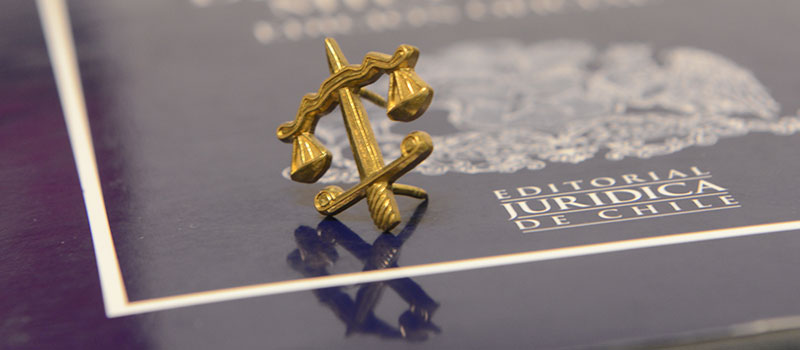
This service performs functions in two areas. Firstly, they fulfill the Jurisdictional Function integrating, in accordance with the law, prosecution offices, military courts, the Court-martial and the Supreme Court of Justice. Secondly, they provide legal advice to command in order to ensure legal security regarding command decisions in the administrative function, thus ensuring the legality of the administration’s actions.
Medical
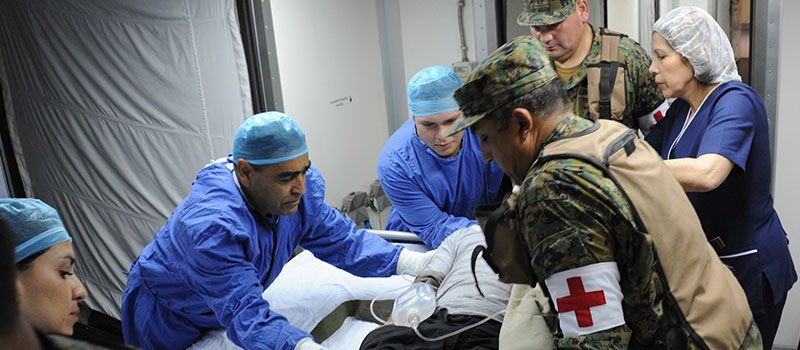
This service is integrated by Medical officers and non-commissioned officers, specialized personnel, units, health organizations and facilities. It is responsible for preventing diseases, maintaining the optimal health of the troops, ensuring the medical recovery of sick or injured personnel. They provide care by administering medications and other medical supplies and managing the evacuation of sick or injured personnel.
Religious (spiritual support)
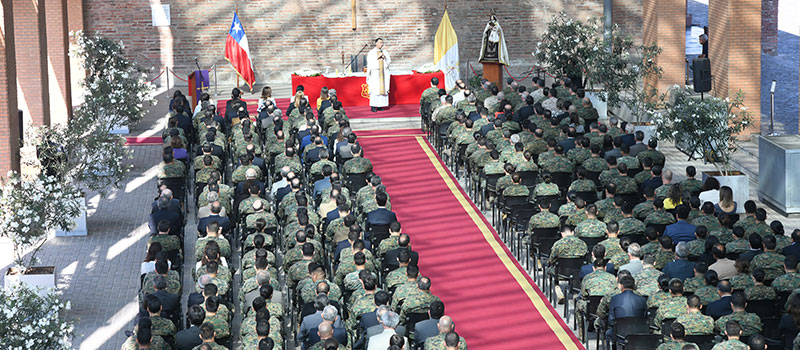
This service offers permanent support and counseling to command, personnel and their family, generating the conditions to provide assistance along with other creeds in the development of military operations, integrating the units of Spiritual Support in Field Administrative Services.
Bands
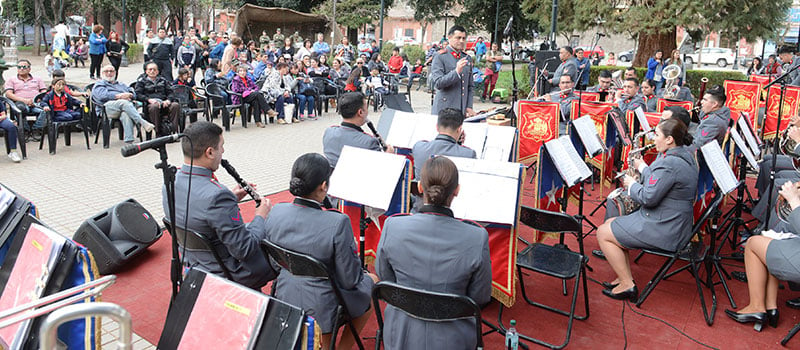
It carries out activities oriented towards enhancing military formations and ceremonies, lifting personnel’s morale. They collaborate in keeping the esprit de corps and promoting national unity, particularly in remote locations far from urban centers. Bands exercise their functions through field services carried out by administrative units, and they participate in all areas of mission.
Veterinary
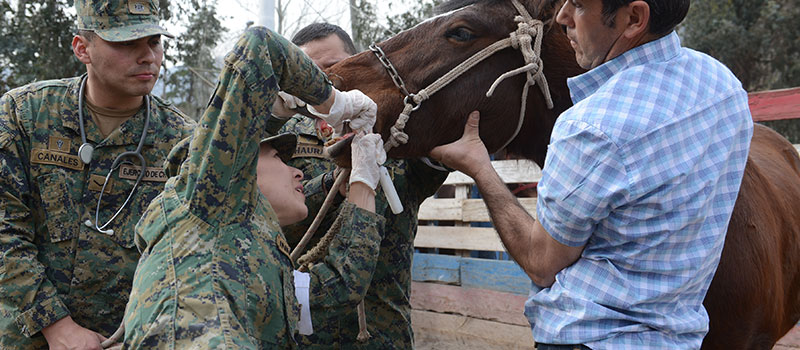
This service is integrated by Veterinary officers and non-commissioned officers, specialized personnel and other means, all responsible for maintaining and ensuring the sanitary conditions of livestock and the environment, in order to protect the optimal health of the personnel. It offers veterinary care to horses, mules and dogs and it ensures the compliance of health regulations, protecting the optimal health of the military personnel.
It also establishes the necessary mitigating measures regarding the environmental impact of the troops.
Graduates of the Military Academy and NCO’s School, throughout their career, are in a constant training process, which is divided into PRIMARY and SECONDARY SPECIALTIES. Primary specialties are granted by the War Academy and the Polytechnic Academy, while secondary specialties are granted by branch and/or specialty schools.
PRIMARy SPECIALTIES
General Staff
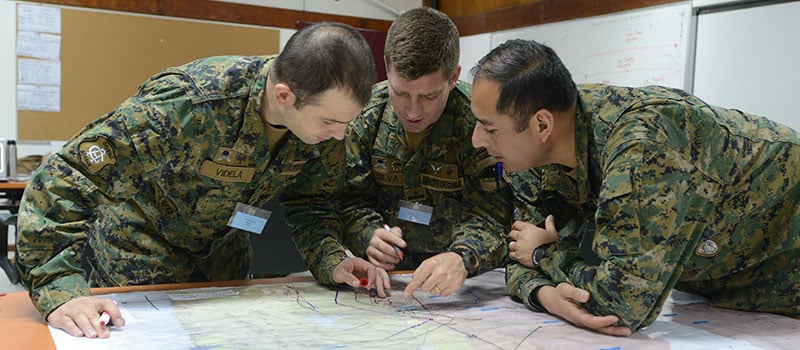
This primary specialty trains highly skilled General Staff Officers to command soldiers and provide them with the necessary knowledge to advice at different levels of military leading. General Staff Officers are qualified to lead in complex scenarios of the defense. This specialty also trains civilian professionals in the field of military sciences.
Military Polytechnic Engineer
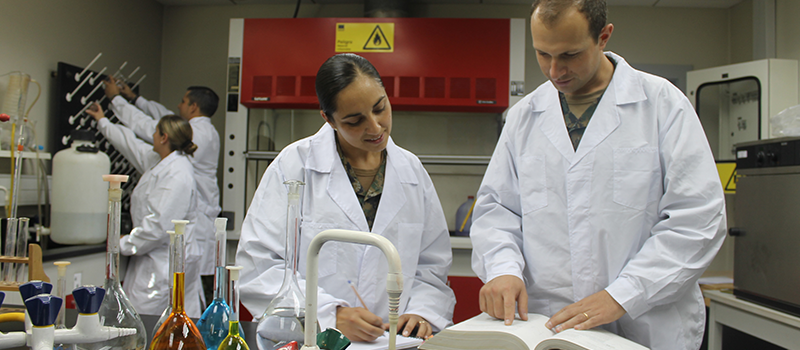
This primary specialty trains officers as Military Polytechnic Engineers in weapons systems, information and communication technologies, and logistics systems. The emphasis is on innovation and technological management for military use.
SECUNDARy SPECIALTIES
Anti-Aircraft Artillery
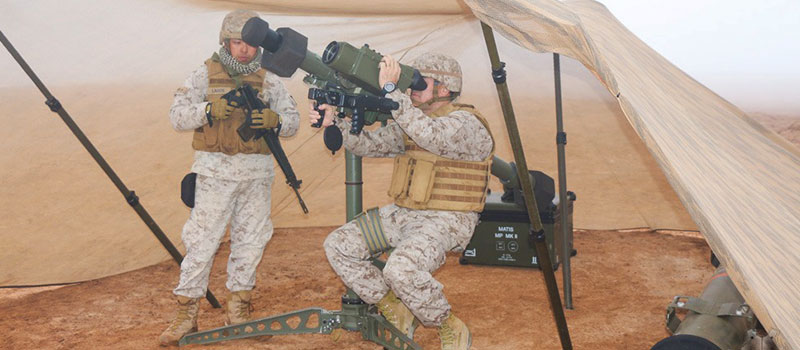
This specialty provides tactical and technical specialization to NCOs to serve as an anti-aircraft artillery piece commander, warning and control system operator, radar operator, anti-aircraft warfare adviser and/or assistant in combined arm units or combat units or as an anti-aircraft warfare instructor whose main task is to train troops.
Military Tactical Diver
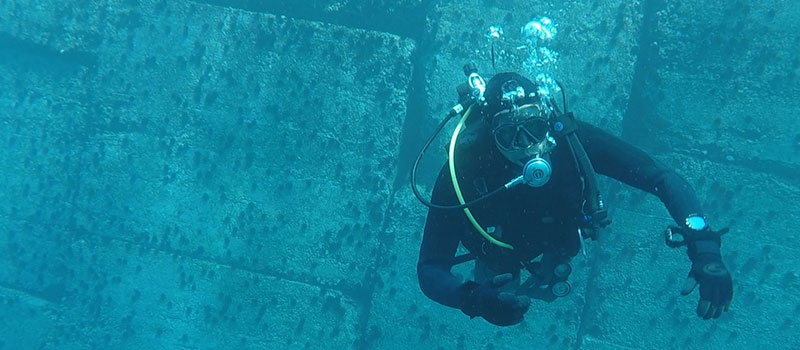
This specialty trains qualified junior officers and NCOs to become a military tactical diver. The military diver has the skills and techniques required to operate in combat environments showing physical ability, resilience and personal effectiveness.
Commando
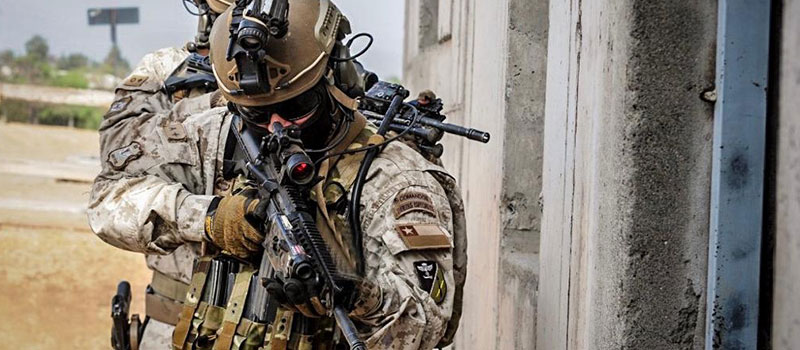
This specialty trains qualified junior officers, NCOs and career soldiers to perform technical and tactical commando duties and serve as a platoon or squad commander. A military commando has the physical and psychological abilities to show leadership while carrying out his/her tasks.
Special Combat
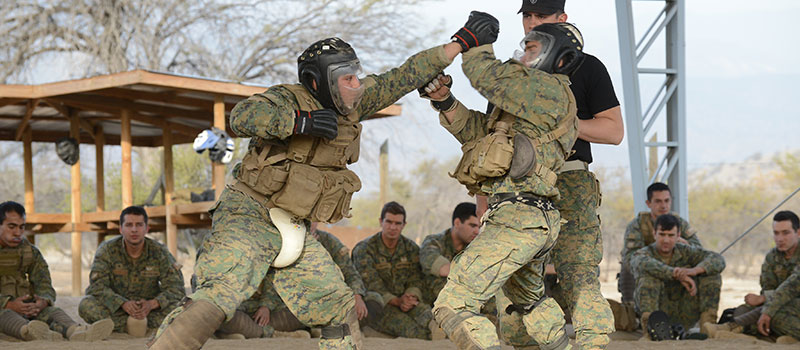
This specialty trains qualified junior officers and NCOs to serve as a special combat instructor. They must have psychological conditions consistent with this specialty.
Electronic Warfare
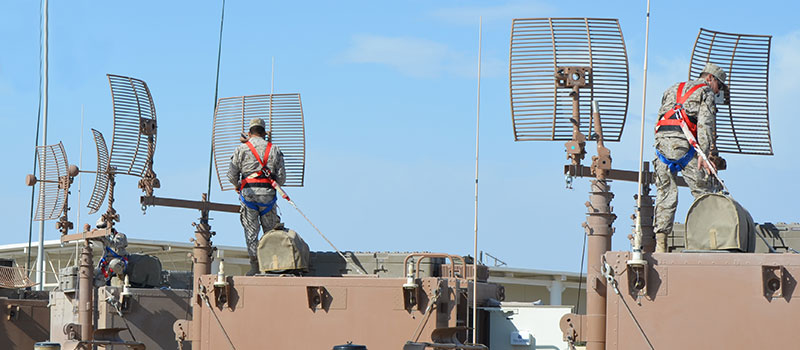
This specialty trains qualified officers and provide them with the necessary competences to be responsible for the planning and implementation of an electronic warfare unit as well as serve as a platoon or company commander or as an adviser on electronic warfare matters.
NCOs must develop the necessary competences to plan and carry out electronic warfare activities as well as serve as an operator, squad commander and adviser’s assistant on electronic warfare matters.
Special Warfare, specializing in Combat Leadership
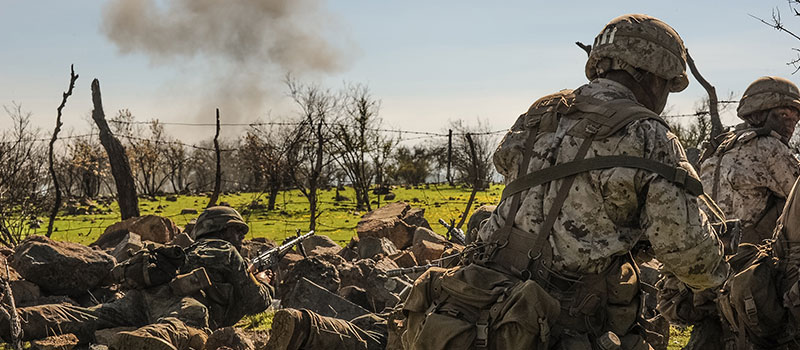
This specialty provides tactical and technical specialization to junior officers and NCOs to lead a platoon, section or squad under different scenarios. They must exercise leadership and have the psychological and physical conditions consistent with this specialty.
Military Instructor in Physical Education
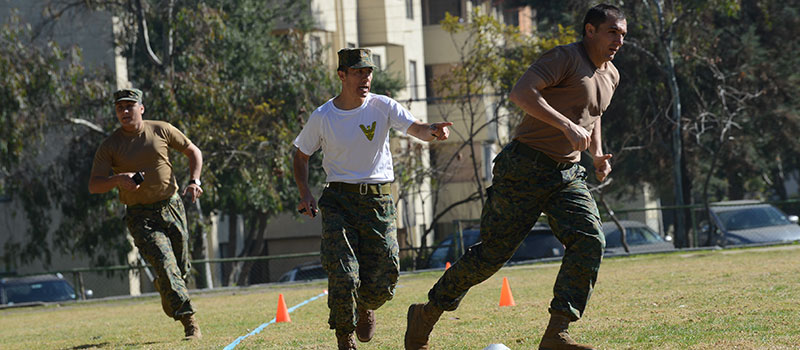
This specialty trains officers and NCOs as military instructors in physical education for combat in accordance with the Chilean Army operational doctrine. This specialty provides them with the technical, methodological and scientific knowledge to advise high command in the planning process to carry out specific activities involving physical training and sports in the Chilean Army units.
Military Instructor, specializing in horses and mules
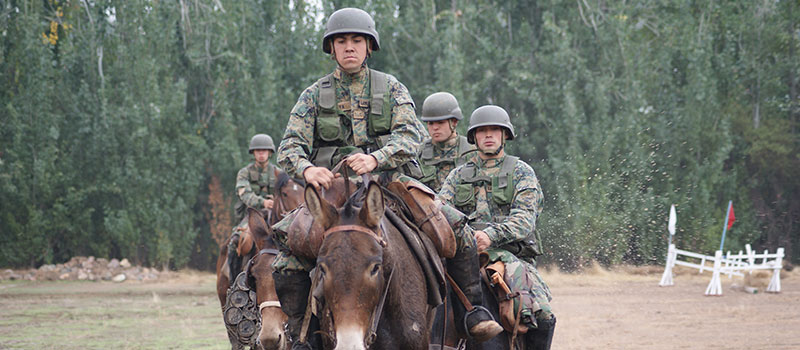
This specialty educates qualified NCOs to train horses and mules for tactical purposes. These personnel also take part in different equestrian activities.
Military Mountain Instructor
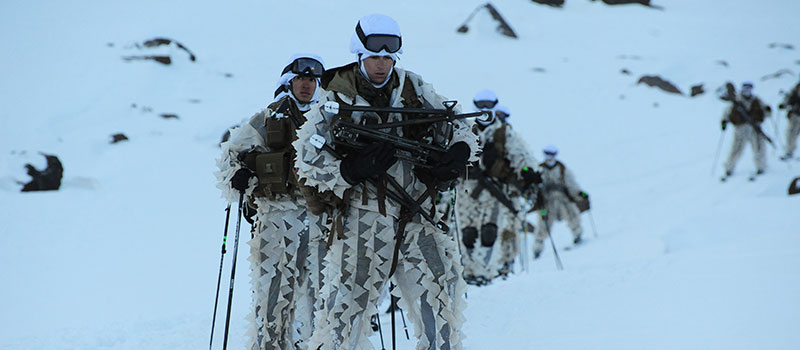
This specialty provides tactical and technical specialization in mountain environment to selected personnel of the Chilean Army. The members of the Army fulfill different roles depending on their ranks. Officers serve as section commanders and members of a mountain troop in mountain units. While NCOs serve as squad commanders and members of a mountain troop in mountain units.
Military Intelligence
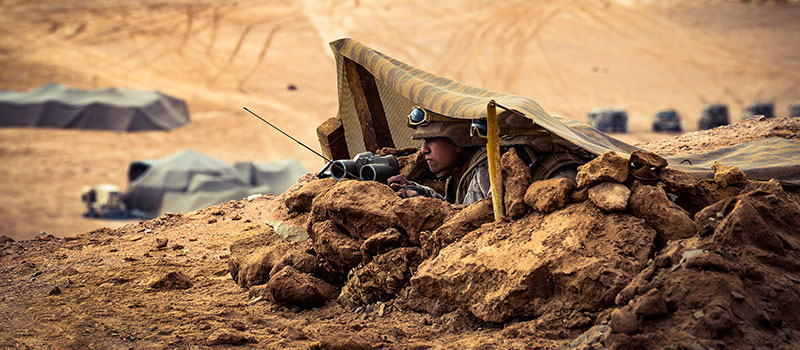
This specialty trains qualified Chilean Army Officers and NCOs, members of other institutions of National Defense and Order and Security, and members of friendly countries in Military Intelligence.
Horse Riding Master
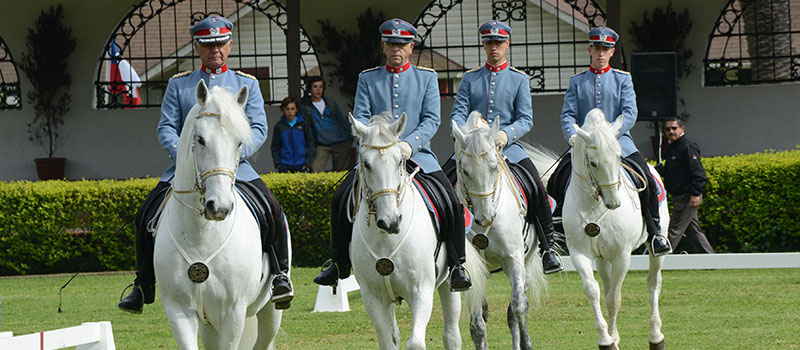
This specialty trains qualified officers to manage, control and carry out military instruction and training with horses and mules. Horse riding masters train riders and horses and/or mules in order to maintain and increase operational efficiency in cavalry and mountain units. This specialty also promotes the Chilean Army presence in different equestrian activities.
Military Paratrooper
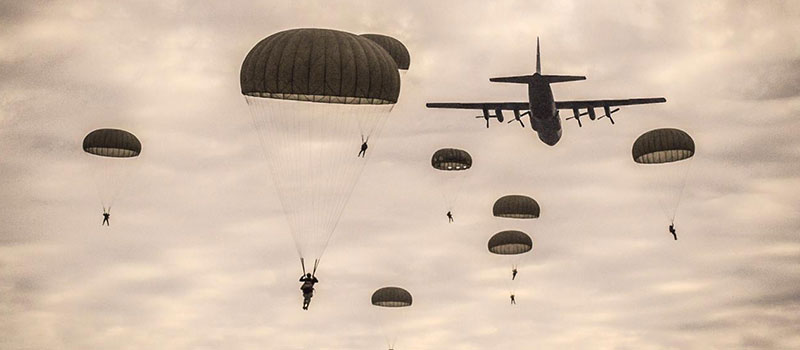
This specialty trains qualified officers, NCOs, career soldiers and students of the military academy and NCOs school to jump out of airplanes. They must have the psychological, physical and personal skills consistent with this specialty.
Army Pilot
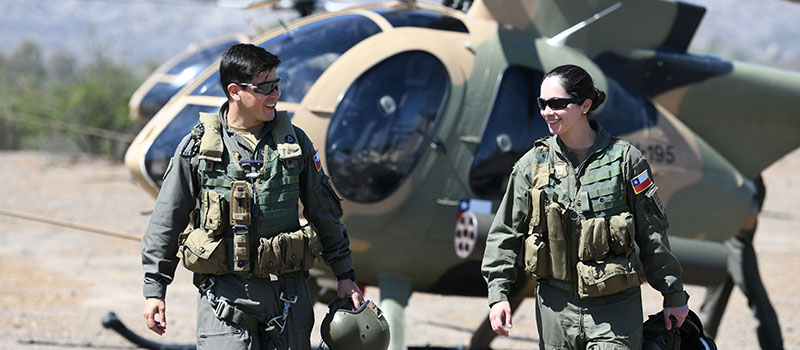
This specialty trains officers to fly military aircrafts both fixed-wing aircraft and rotary-wing aircraft.
Military Teacher
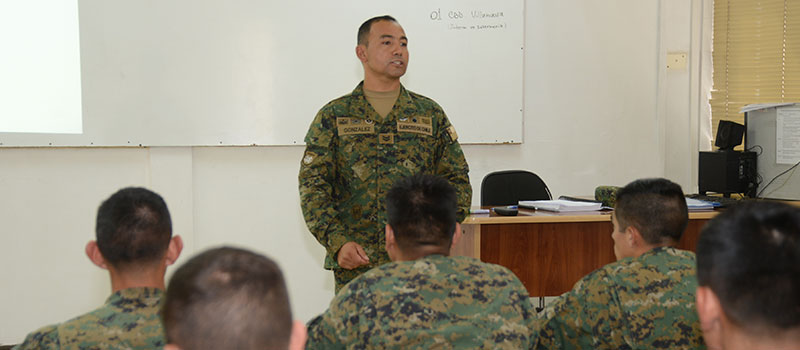
The aim of this specialty is to have qualified officers, NCOs, and civilian personnel able to teach in military schools and institutes. These personnel must have teaching skills and specific research skills to perform this role.
Military Translator and/or Interpreter
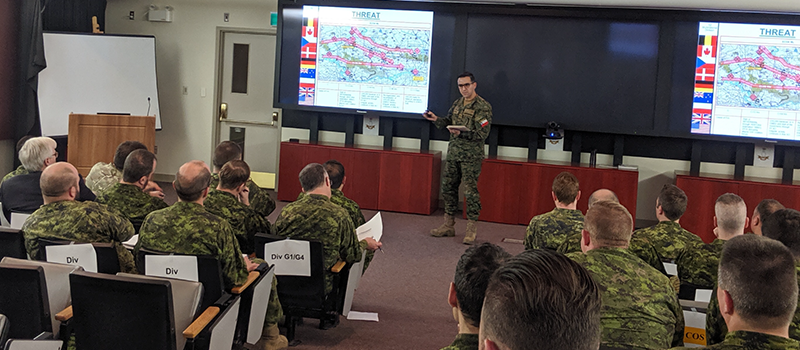
This specialty recruits officers, NCOs, civilian personnel and students of the military academy and NCOs school who have language abilities to perform translation and/or interpreter duties in many foreign languages.
Combat Reconnaissance Specialist
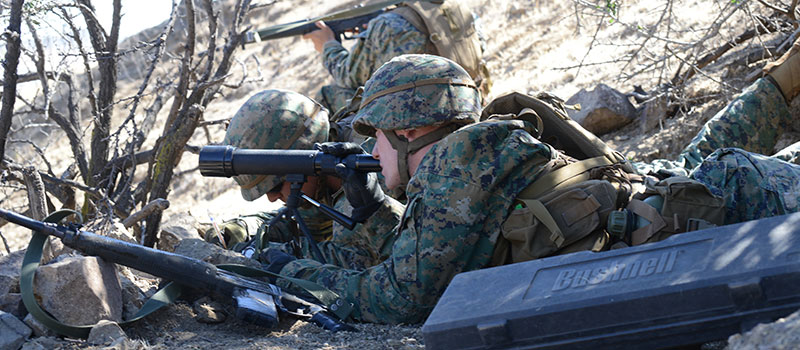
This specialty trains qualified officers and NCOs to serve as commanders or members of a reconnaissance unit or scouting unit in exploration missions to acquire information.
